Psychology Report on Alcohol Addiction in Early Adulthood: Analysis
VerifiedAdded on 2020/05/16
|5
|956
|202
Report
AI Summary
This report delves into the issue of alcohol addiction during early adulthood, focusing on the factors that contribute to excessive drinking and its negative consequences, particularly among college students. The report examines the impact of alcohol abuse, including academic setbacks, risky behaviors, and health issues, supported by statistical data. It explores psychological theories, such as the psychodynamic theory, linking addiction to coping mechanisms for negative experiences and low self-esteem. The analysis includes a critical evaluation of the provided article, acknowledging its strengths in highlighting the adverse effects of alcohol while also noting its limitations, such as a narrow focus on college students and a lack of attention to the multifaceted influences on alcohol consumption, including psychosocial factors like parental alcoholism. The report concludes with a comprehensive overview of the subject, emphasizing the need for a broader understanding of the issue.
1 out of 5
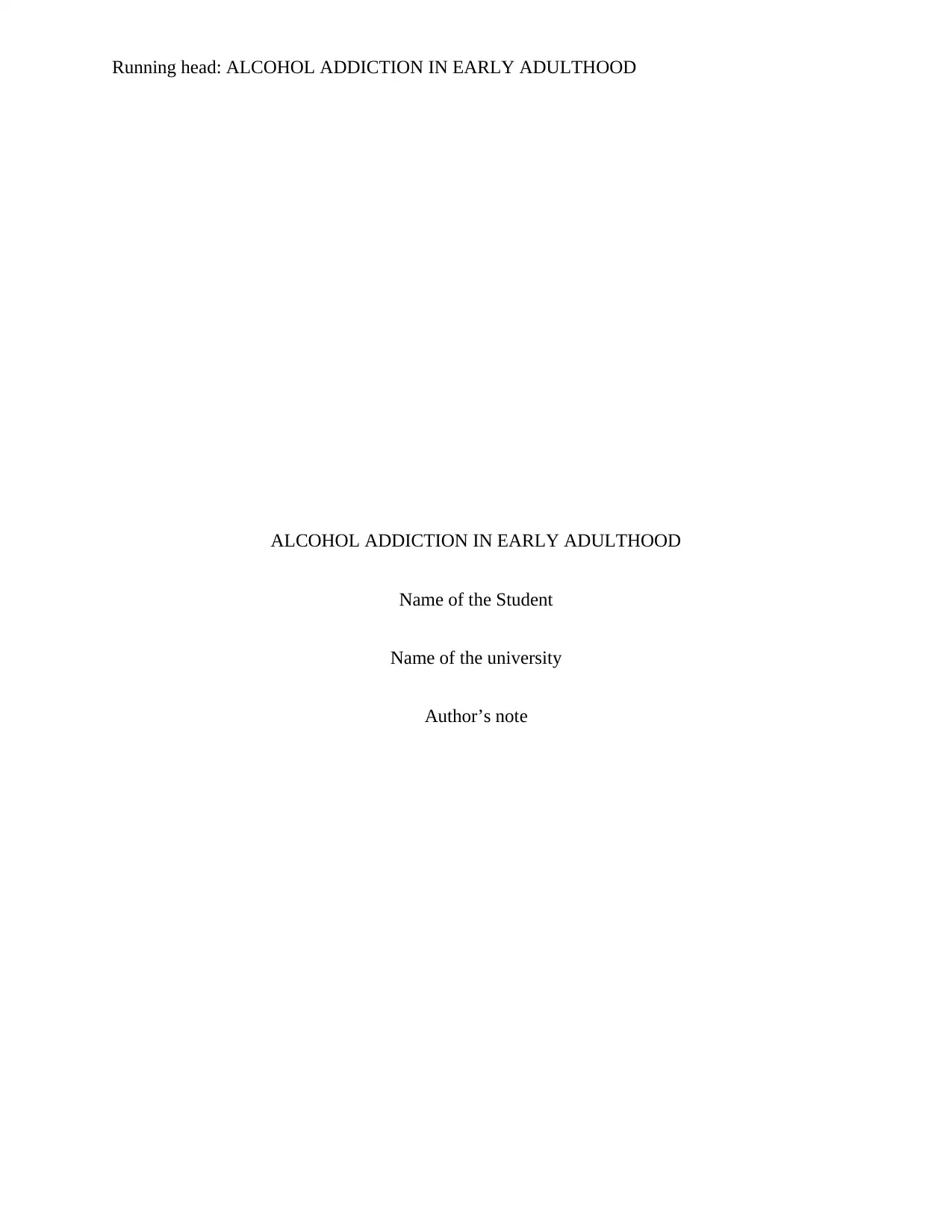
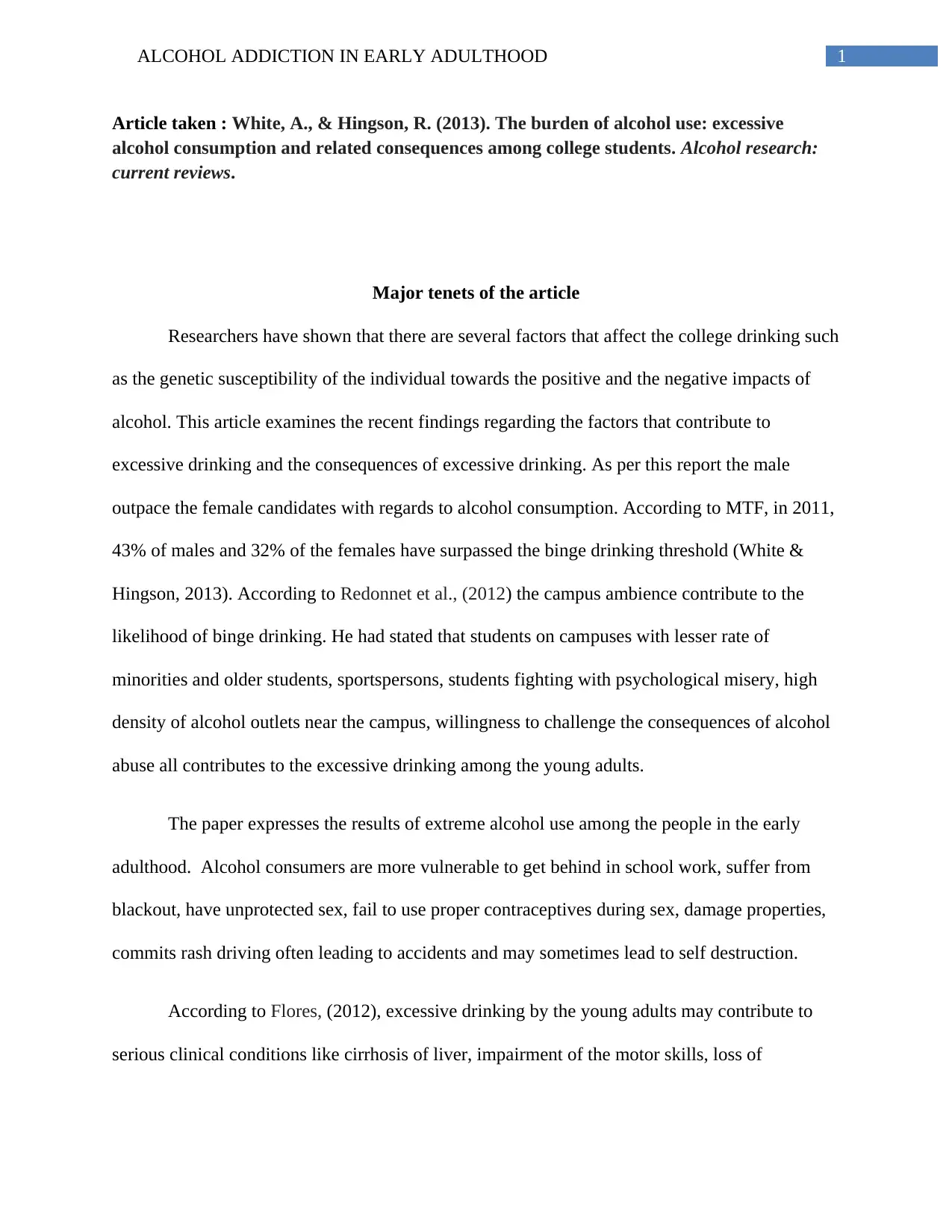
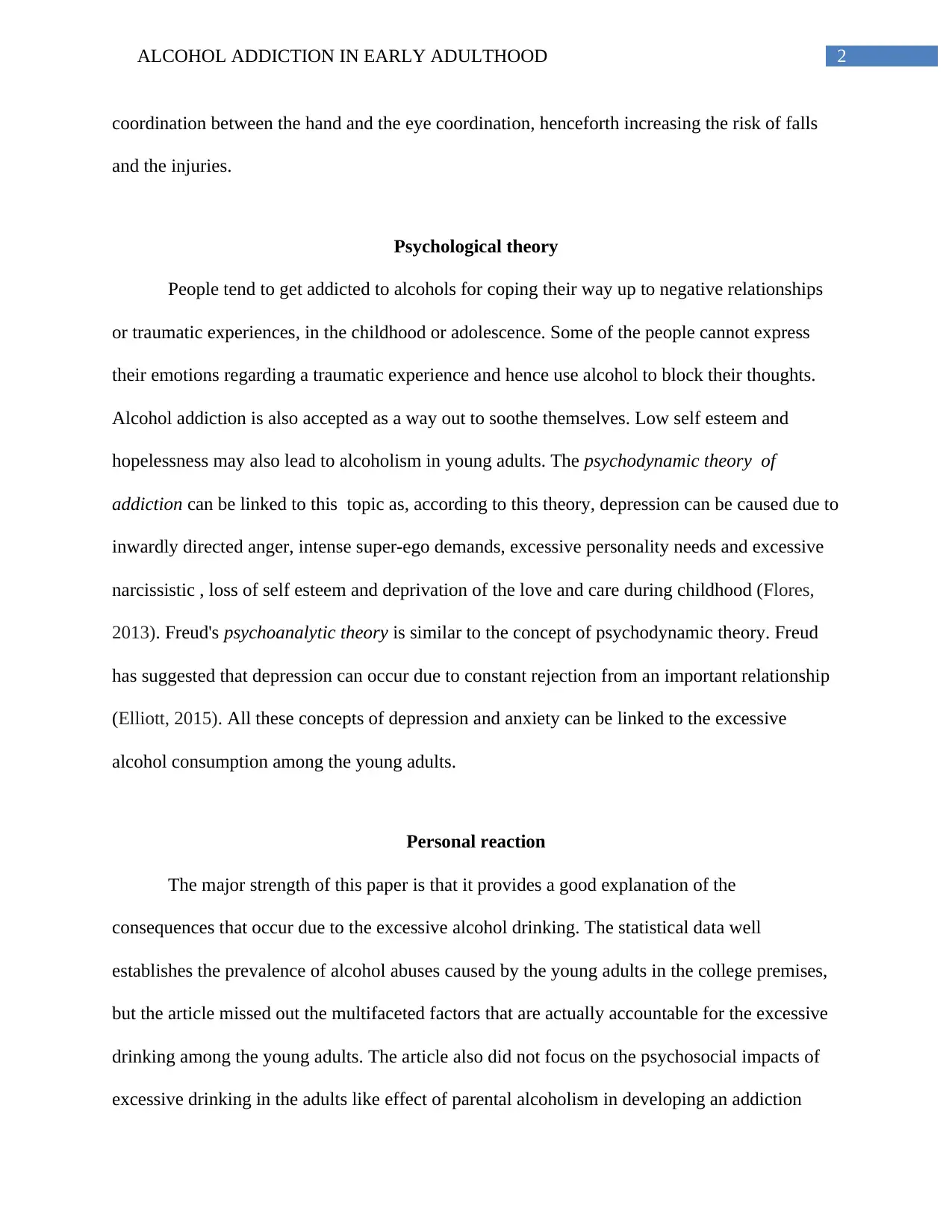

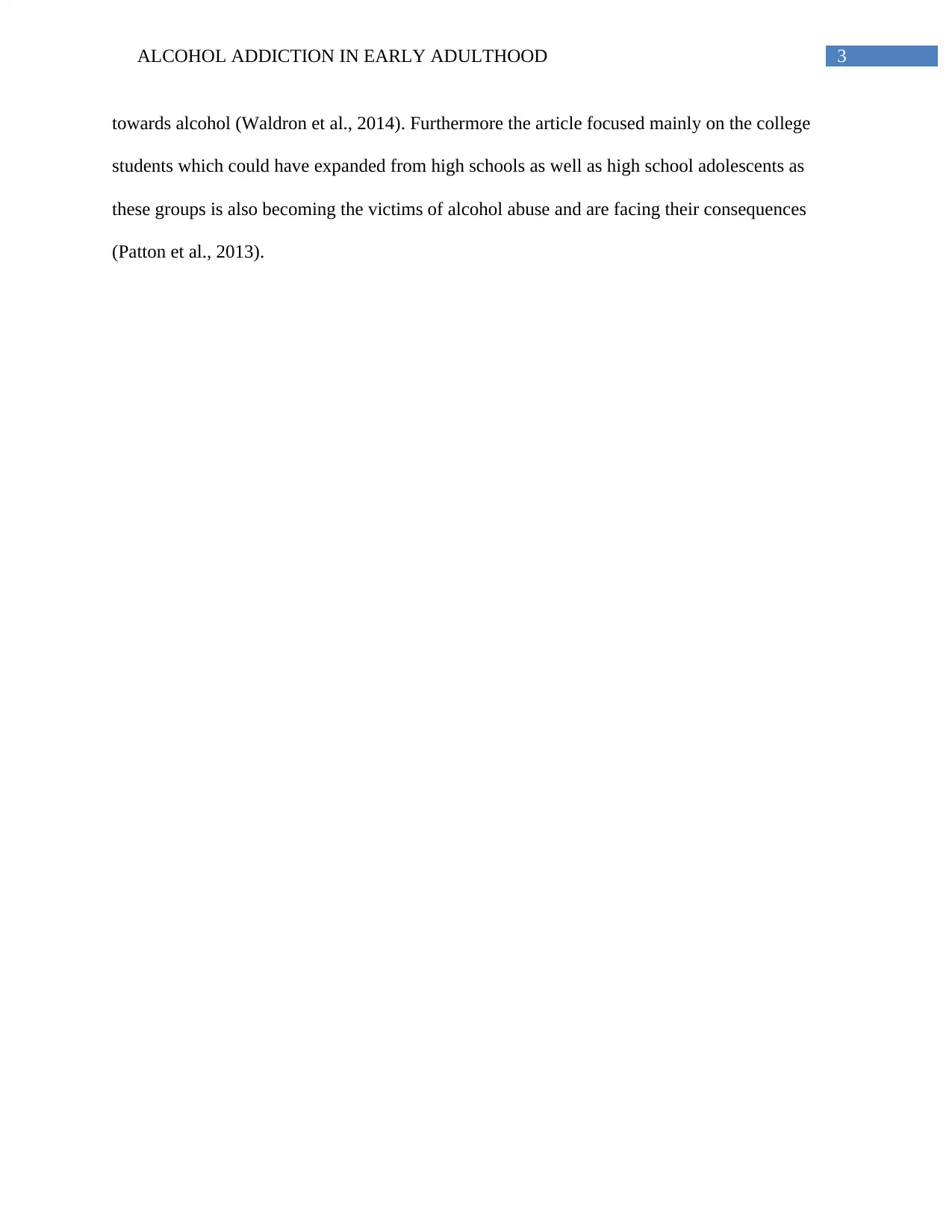
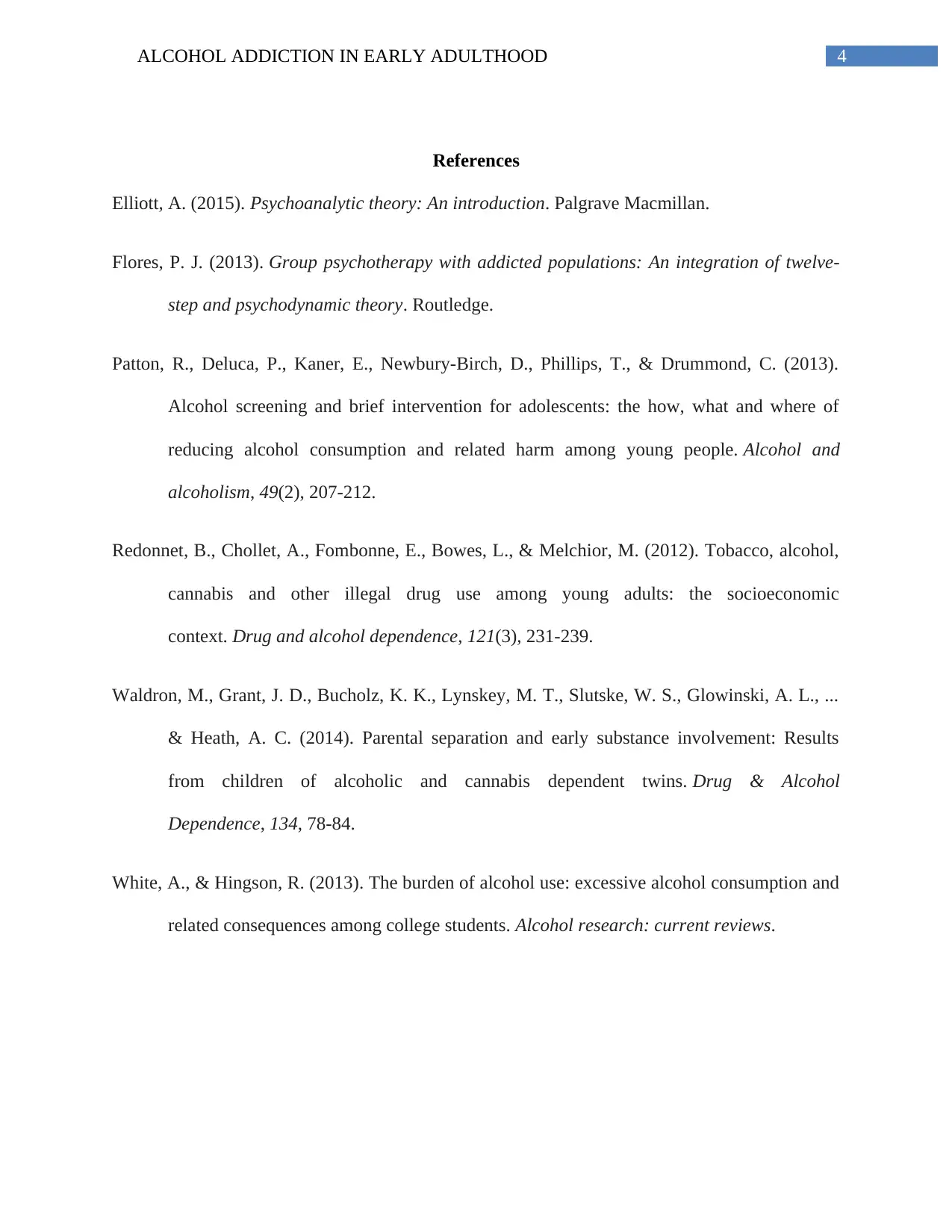


![[object Object]](/_next/static/media/star-bottom.7253800d.svg)